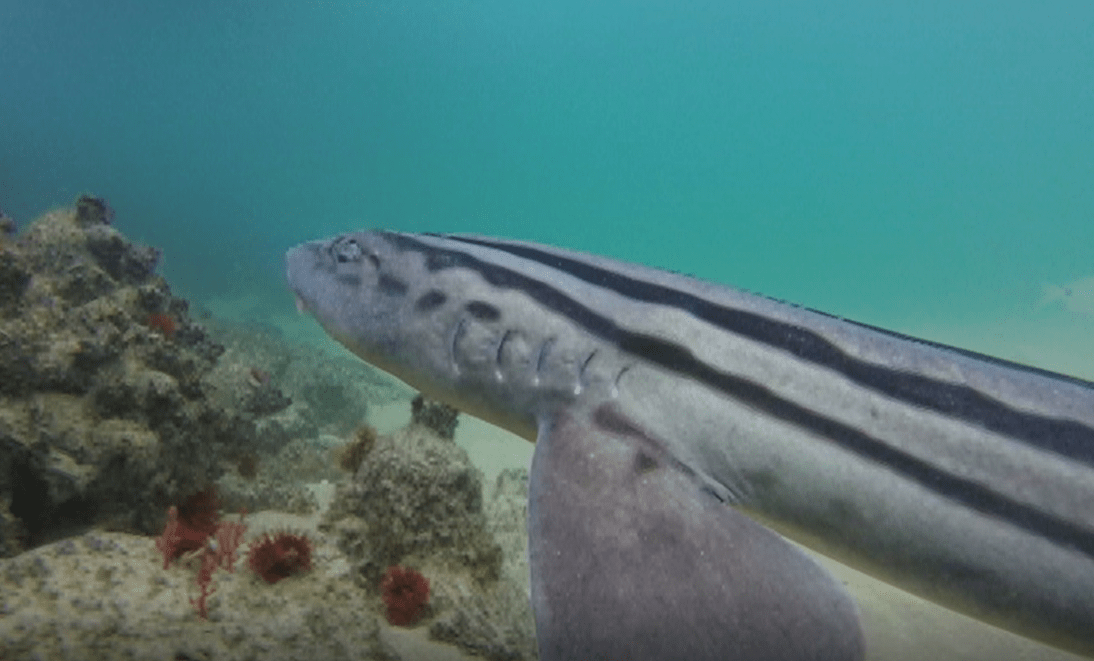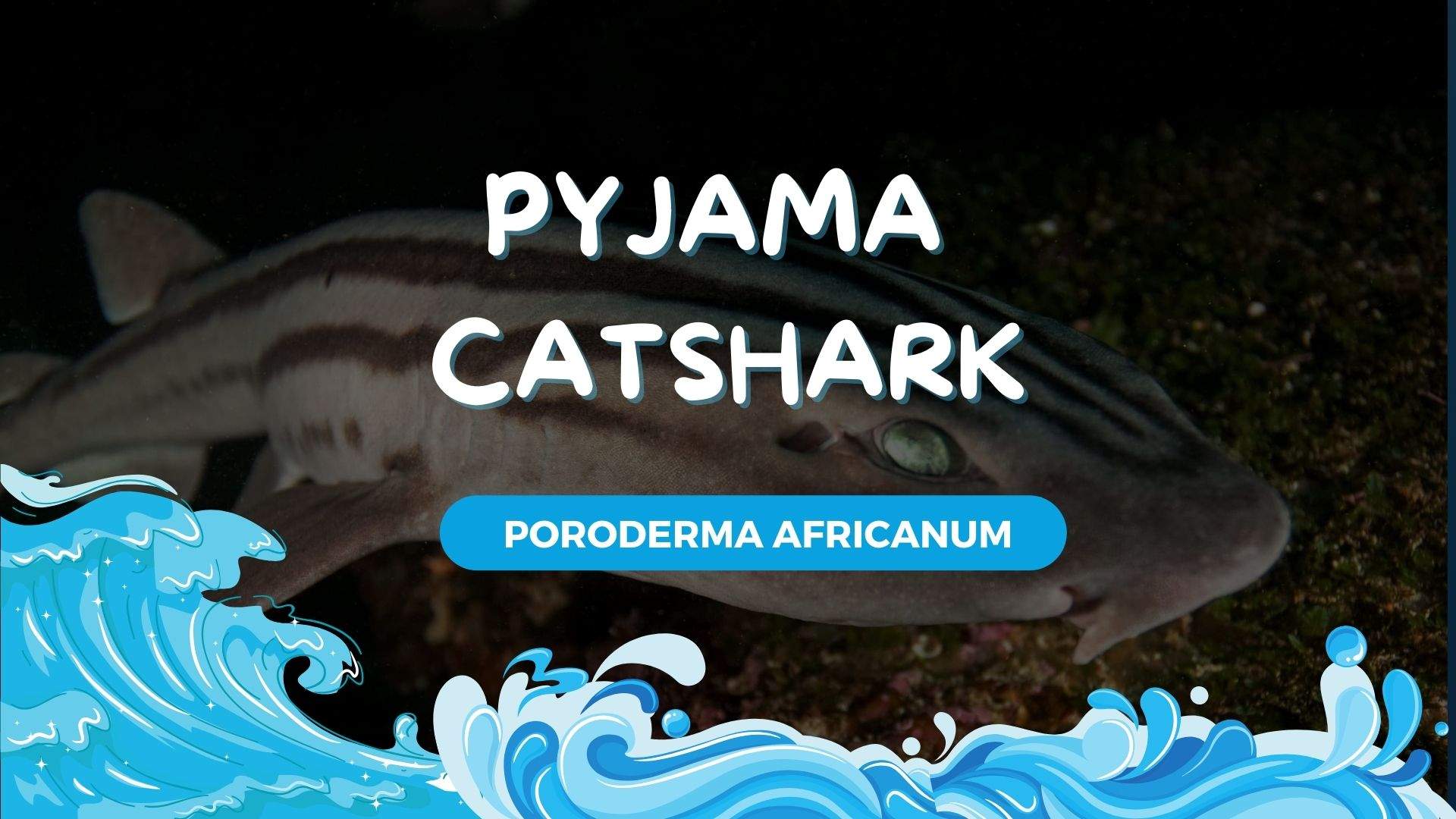
Species: The pyjama shark or striped catshark (Poroderma africanum))
Total Length: 830 mm
Gender: Male
Eatsummore’s tag nr : D245328
Location: Dolicers , Mossel bay, South Africa


The pyjama shark or striped catshark (Poroderma africanum) is a species of catshark, and part of the family Scyliorhinidae, endemic to the coastal waters of South Africa. This abundant, bottom-dwelling species can be found from the intertidal zone to a depth of around 100 m (330 ft), particularly over rocky reefs and kelp beds. With a series of thick, parallel, dark stripes running along its stout body, the pyjama shark has an unmistakable appearance. It is additionally characterized by a short head and snout with a pair of slender barbels that do not reach the mouth, and two dorsal fins that are placed far back on the body. It can grow up to a length of 1.1 m (3.6 ft) long.
The pyjama shark is primarily nocturnal, spending most of the day lying motionless and hidden in a cave or crevice or among vegetation. It often forms groups, particularly during summer. This species is an opportunistic predator that feeds on a wide variety of fishes and invertebrates; it favors cephalopods and frequents the spawning grounds of the chokka squid (Loligo reynaudi). When threatened, it curls into a circle with its tail covering its head. Reproduction is oviparous, with females laying rectangular, dark brown egg cases two at a time year-round. This small and harmless shark adapts well to captivity and is commonly displayed in public aquariums. It is often caught as a bycatch of commercial and recreational fisheries. Many are killed by fishers who regard them as pests.
The adoption fee for Eatsummore has been directed to the shark conservation programs conducted by the Shark Research Unit. Specifically we will be using the funds to drive our contribution to motivating local Mossel Bay restaurants to sign up and join the sustainable seafoods initiative (SASSI). This initiative is developed and managed by WWF and designed to aid both consumers and sellers to only trade in sustainably sourced fish species. Sharks form a bicatch in many South African fisheries, but those fisheries determined as sustainable by SASSI have measures in place to limit and reduce bycatch of sharks and other non-target species.